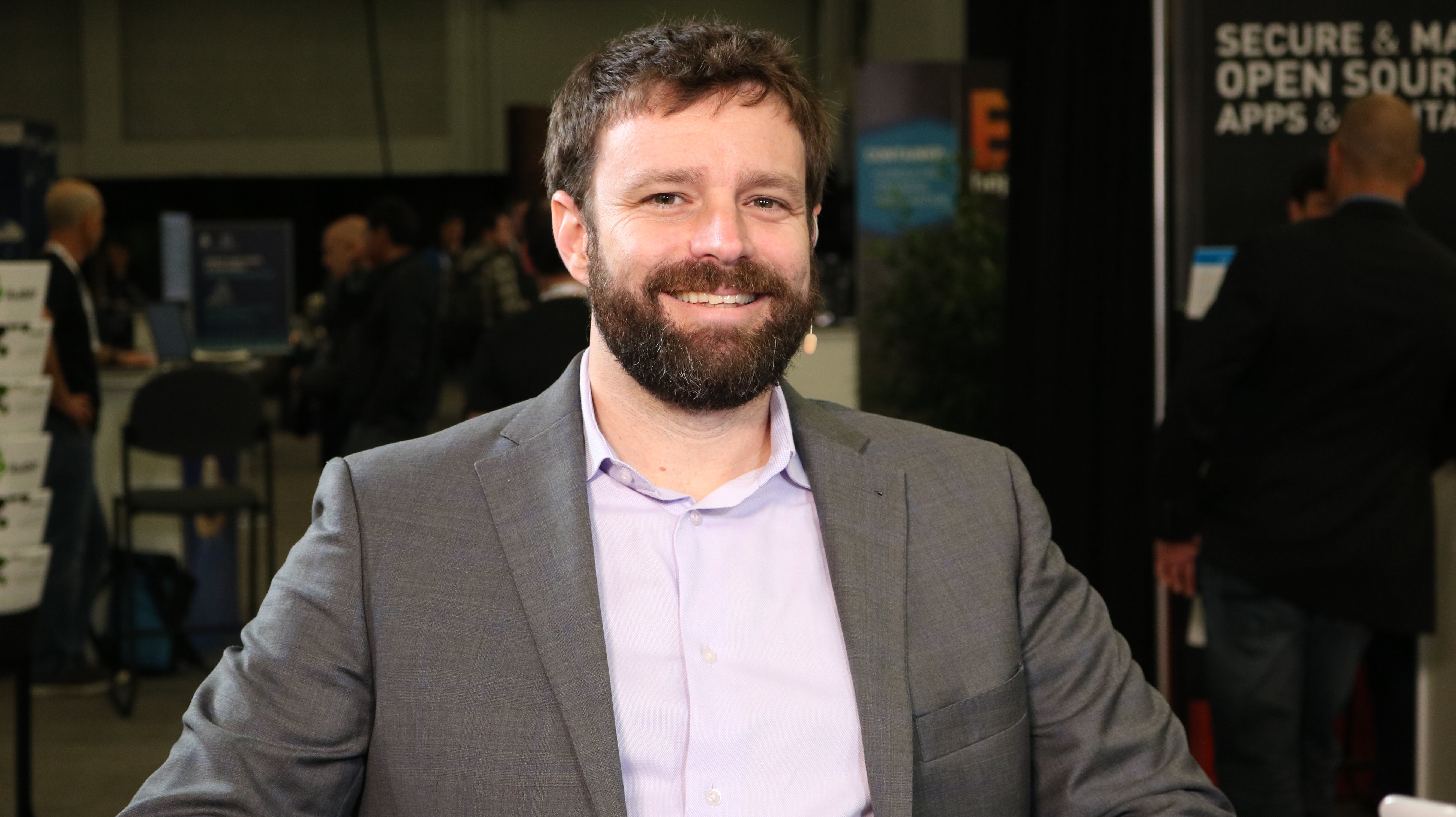 CLOUD
CLOUD
 CLOUD
CLOUD
 CLOUD
CLOUD
The growing trend toward cloud-native programming is fundamentally changing the way applications are developed, integrating and automating pieces previously separated and delayed by disjointed manual processes. Adopting strategies to take advantage of more efficient development opportunities has become mission-critical for competitive businesses, but making the transition rapidly can open organizations to risk — or at the very least disorganized operations and cultural inconsistencies.
“The game has changed, and the way you write your application is not the same as the monolithic app we might have written on an IBM or a traditional system,” said Dustin Kirkland (pictured), vice president of product development for Ubuntu at Canonical Ltd. At Canonical, Kirkland works with enterprise customers using Kubernetes to streamline implementation through this paradigm shift.
Kirkland spoke with John Furrier (@furrier) and Stu Miniman (@stu), co-hosts of theCUBE, SiliconANGLE Media’s mobile livestreaming studio, during the KubeCon + CloudNativeCon event in Austin, Texas. They discussed the motivations behind businesses moving toward platforms like Kubernetes and how Canonical is working to stay ahead of tech trends (* Disclosure below).
The impetus behind this fundamental shift is a new perspective on the allocation of resources and adjusted prioritization within software-defined storage and networking. Canonical utilizes Kubernetes to support the accelerated growth enabled by this virtualization.
“Now we virtualize [network and storage] into software-defined storage and software-defined networking. Things like OpenStack bring all that together from an infrastructure perspective. … [And] Kubernetes helps you think about applications in a different way,” Kirkland said.
Canonical typically begins working with customers through the developer network around Ubuntu, the company’s operating system. “Ubuntu the kernel, that’s the system D, that’s the hypervisor, that’s all the storage and drivers that makes the operating system work well on hardware … as well as in virtual machines,” Kirkland said.
Through Ubuntu, Canonical provides open-source Kubernetes distribution with security patches applied. Though many Canonical customers looking to stay competitive begin their cloud journey unsure of which direction to take the Kubernetes platform, Kirkland and his team provide a roadmap to ensure a steady, thoughtful adoption process.
“We’re helping bring some of the interesting workloads that exist … and putting those on top of Canonical Kubernetes,” he said.
Working with enterprises in a range of industries demands varied offerings from Canonical, and the company is working to stay ahead of customer needs. “We released a new product … in conjunction with our partners at Rancher Labs. … Everyone’s interested in a developer workflow that includes open-source Ubuntu, open-source Kubernetes and open-source Rancher, which really accelerates the velocity of development,” Kirkland said.
For customers more interested in Canonical’s innovative opportunities than its supportive functions, Kirkland’s team offers a set of products called feature sponsorships. “Those customers are less interested in 24/7 telephone support and far more interested in sponsoring certain features into Ubuntu itself and helping drive the Ubuntu roadmap,” he said.
Looking ahead, Kirkland is interested in the opportunities machine learning and the edge hold for Canonical. “What’s exciting to me about the edge is that every edge device is connected to … an OpenStack cloud, a Kubernetes cloud, a public cloud or a private implementation of that cloud. We see containers being deployed on Ubuntu on those edge devices as the application format,” he said.
Kirkland sees the connection between the edge and the cloud as central to Canonical’s strategy. “That’s what’s driving Kubernetes adoption,” he concluded.
Watch the complete video interview below, and be sure to check out more of SiliconANGLE’s and theCUBE’s coverage of the KubeCon + CloudNativeCon event. (* Disclosure: Canonical Ltd and Red Hat Inc. sponsored this segment of theCUBE. Neither Canonical/Red Hat nor other sponsors have editorial control over content on theCUBE or SiliconANGLE.)
Support our mission to keep content open and free by engaging with theCUBE community. Join theCUBE’s Alumni Trust Network, where technology leaders connect, share intelligence and create opportunities.
Founded by tech visionaries John Furrier and Dave Vellante, SiliconANGLE Media has built a dynamic ecosystem of industry-leading digital media brands that reach 15+ million elite tech professionals. Our new proprietary theCUBE AI Video Cloud is breaking ground in audience interaction, leveraging theCUBEai.com neural network to help technology companies make data-driven decisions and stay at the forefront of industry conversations.